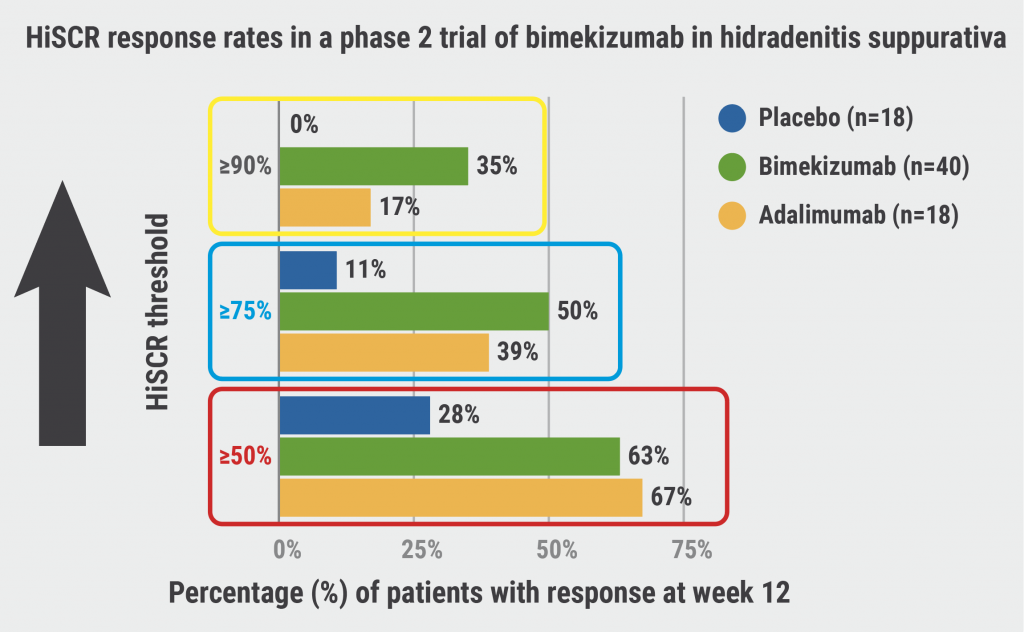https://doi.org/10.55788/9bf69736
Treatment success for alopecia areata (AA) is higher in patients treated early (i.e. as long as hair is still present) [1]. This makes alopecia totalis (AT) and alopecia universalis (AU) difficult-to-treat subtypes of AA. In a subset analysis, Dr Melissa Piliang (Cleveland Clinic, OH, USA) and colleagues assessed the efficacy of ritlecitinib treatment up to 24 months in patients with AT/AU who took part in the ALLEGRO phase 2b study (NCT03732807) and the ongoing, long-term phase 3 ALLEGRO-LT study (NCT04006457) [2].
In the recent ALLEGRO trial, the JAK3/TEC kinase inhibitor ritlecitinib demonstrated efficacy and acceptable safety in patients with AA aged ≥12 years [3]. At week 24, 31% of participants treated with the highest ritlecitinib dose achieved a Severity of Alopecia Tool (SALT) score of 20 or less. In the new analysis, SALT scores were evaluated on an observed or last-observation-carried-forward (LOCF) basis [2]. AT/AU was defined as patients with a SALT score of 100 at baseline.
At month 24, 59.6% of the participants with AT/AU at baseline achieved a SALT score ≤20 in the as-observed analysis (36.1% in the LOCF analysis). Thus, sustained responses in the subgroup of participants with AT/AU were similar to those in the overall trial. Both in the AT/AU and the non-AT/AU population, responses increased over time and were maintained for as long as participants remained on therapy. A SALT score ≤10 was reached by 53.2% of the AT/AU population in the as-observed analysis (31.4% in the LOCF analysis).
Dr Piliang emphasised that a SALT score <10 means that patients have 90% hair regrowth. “A substantial proportion of patients with AT/AU are achieving 90% or more of hair regrowth, so really an excellent response,” she concluded.
Relevant readings:
- JAK3/TEC inhibition achieves clinically meaningful responses in AA (EADV 2023)
- Can ritlecitinib deliver long-term efficacy in alopecia areata? (WCD 2023)
- The rise of JAK inhibitors for alopecia areata (DDD 2023)
- King B. S022, 2024 AAD Annual Meeting, 8-12 March, San Diego, USA.
- Piliang M. Efficacy of ritlecitinib up to months 24 in patients with alopecia totalis (AT) and alopecia universalis (AU) from the ALLEGRO phase 2b/3 and long-term phase 3 clinical studies. LB1, 2024 AAD Annual Meeting, 8–12 March, San Diego, USA.
- King B, et al. Lancet 2023;401: 1518-29.
Copyright ©2024 Medicom Medical Publishers
Posted on
Previous Article
« Functional imaging to complement bone marrow MRD in multiple myeloma Next Article
Promising first results of novel topical treatment for congenital ichthyosis »
« Functional imaging to complement bone marrow MRD in multiple myeloma Next Article
Promising first results of novel topical treatment for congenital ichthyosis »
Table of Contents: AAD 2024
Featured articles
New Developments in Dermatology
Upadacitinib: A novel treatment option for vitiligo
JAK1 inhibitor meets primary endpoint in prurigo nodularis
Botanical drug solution leads to sustained hair regrowth in paediatric alopecia
SGLT2 inhibition: A possible mode-of-action for inflammatory skin diseases?
Promising first results of novel topical treatment for congenital ichthyosis
Ritlecitinib also effective in patients with total hair loss
Atopic Dermatitis and Eczema in 2024
Amlitelimab leads to a high response 28 weeks after treatment discontinuation
Delgocitinib cream: A promising treatment option for chronic hand eczema
The Latest in Psoriasis
Robust long-term efficacy of bimekizumab in psoriasis
Benefit and safety of TYK2 inhibitor ESK-001 for psoriasis in phase 2
Durable skin clearance by IL-23 blockers due to reduction of resident memory T cells
Hidradenitis Suppurativa: New Treatment Possibilities
HS: Targeting IL-1 pathway potential option after anti-TNF failure
BTK signalling as a novel target in hidradenitis suppurativa treatment
Topical ruxolitinib shows promise in milder stages of hidradenitis suppurativa
Best of the Posters
Children with atopic dermatitis may be smaller and heavier than healthy children
JAK inhibitors have similar incidence rates of long-term adverse events as traditional immunomodulators
Baricitinib maintains regrowth of hair, eyebrows, and eyelashes over 3 years
GUIDE demonstrates: Hit hard and early in psoriasis
Hidradenitis suppurativa treatment with secukinumab linked to low immunogenicity
Related Articles
August 26, 2019
Antibiotics in hidradenitis suppurativa

August 26, 2022
IHS4 better suited as an outcome measure in HS trials?
© 2024 Medicom Medical Publishers. All rights reserved. Terms and Conditions | Privacy Policy
HEAD OFFICE
Laarderhoogtweg 25
1101 EB Amsterdam
The Netherlands
T: +31 85 4012 560
E: publishers@medicom-publishers.com

